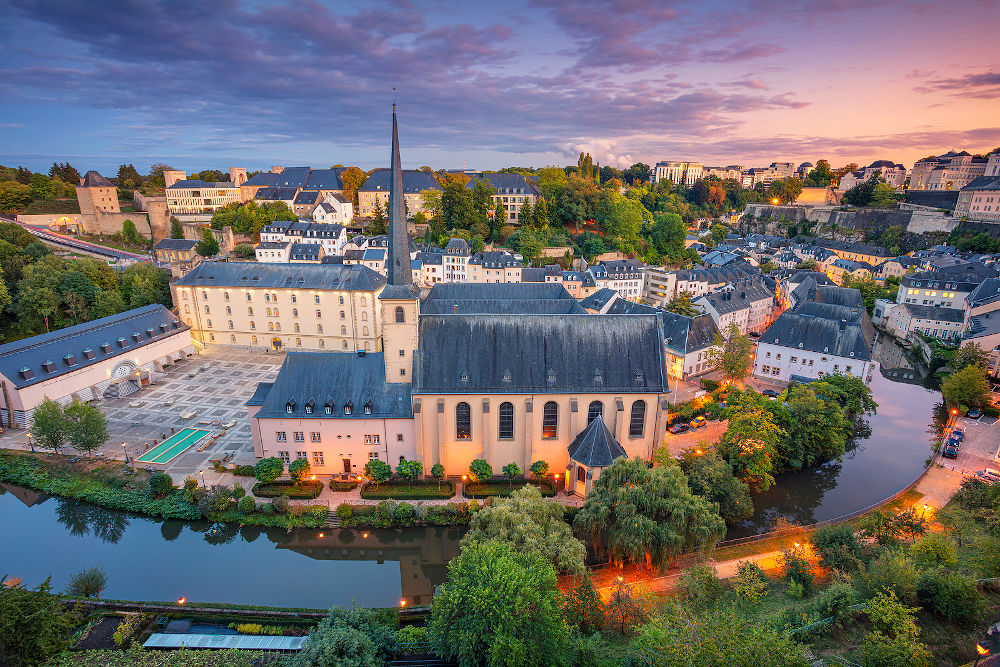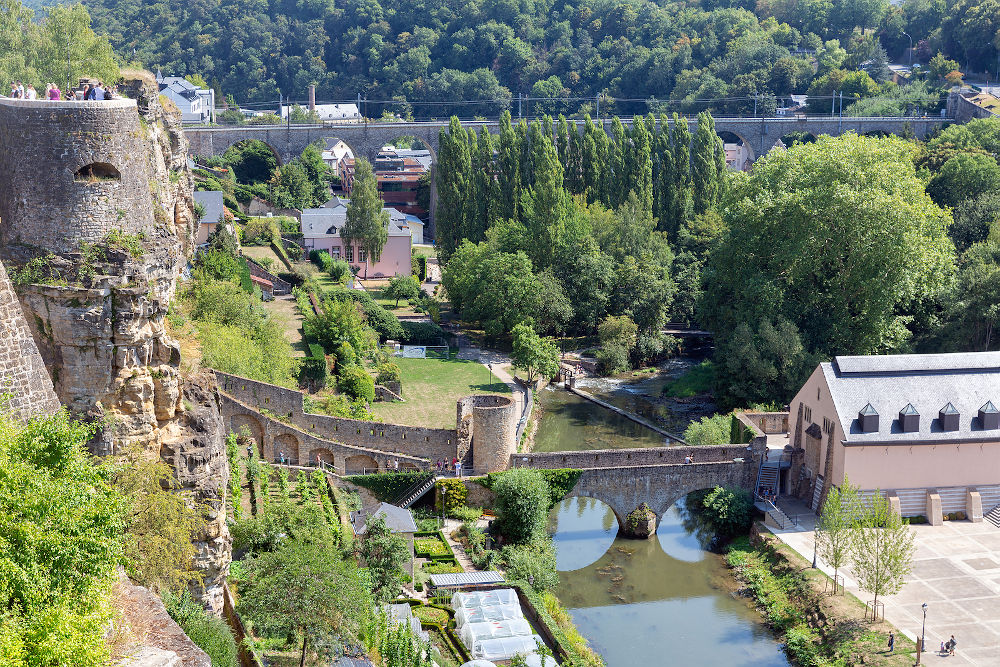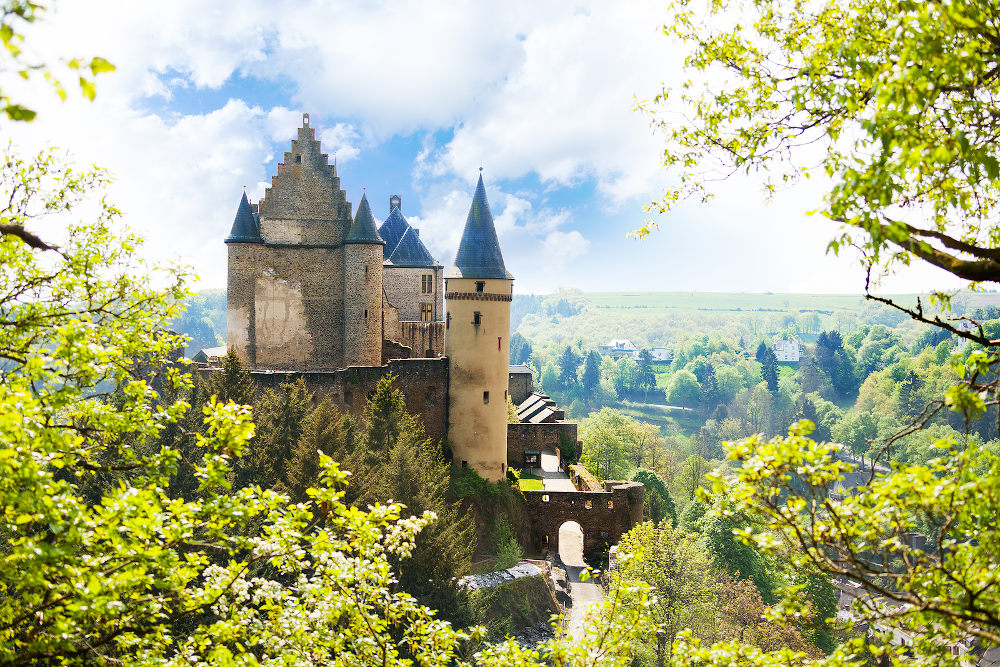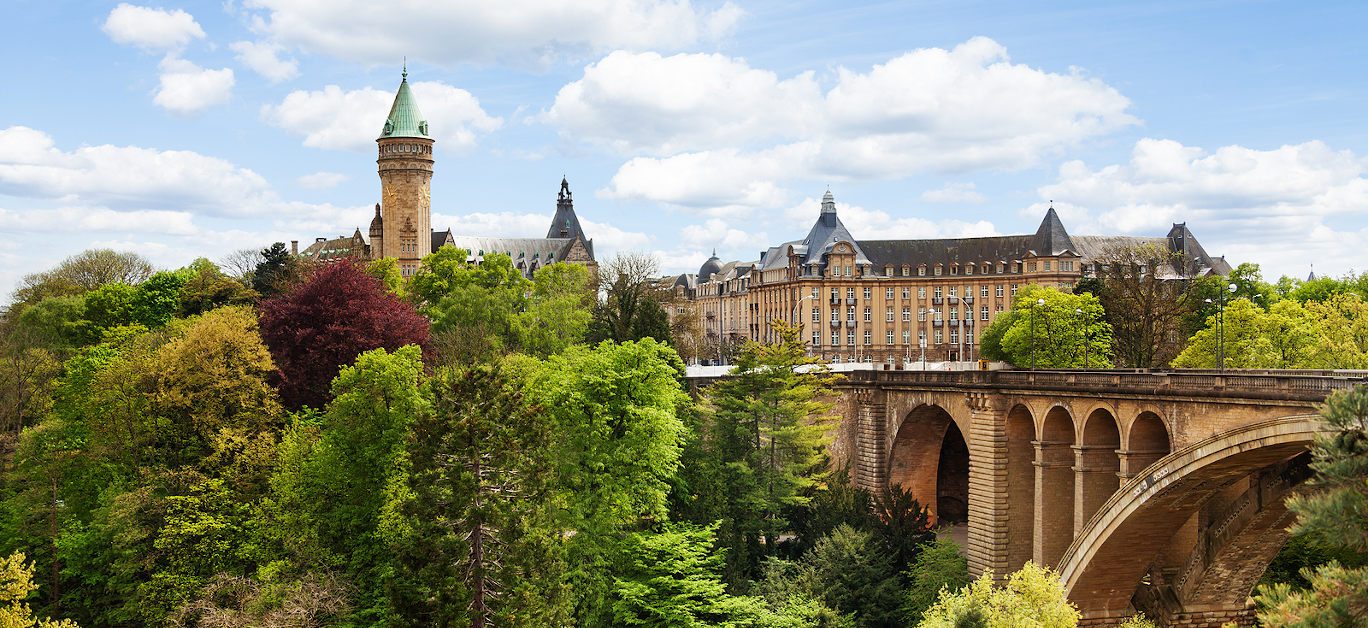First-time visitors to the little landlocked country of Luxembourg will likely have heard of its robust financial benefits, its abundance of natural landscapes and its medieval structures, but there’s a lot more going on in this compact European country.
Bordering Belgium, France and Germany, it’s safe to say that its neighbours have an influence of what can be discovered here, especially within the delightful food that can devoured across the region. Hosting an estimated population of just over 630,000, its rich, dense forests, nature parks, Moselle River valley and rocky gorges make up some of the landscape – perfect for those with a love of the outdoors, while capital, Luxembourg City is perfect for history lovers and culture vultures.
Its capital’s old town is perched high on cliffs and is renowned for its ruins of medieval fortifications, with the Archaeological Crypt, underground tunnels and Chemin de la Corniche promenade providing top sights. Five-star hotels and recognised restaurants abound, and wine enthusiasts will be in luck when paying a visit to Luxembourg.
Here’s all you need to know when planning your first trip to this nature-filled nation.

Getting around
The international airport in Luxembourg receives flights from all over the world, making the nation easily accessible from many locations. When arriving at the airport there are buses (line 16 and 29) and taxis that can get you into the city. While this may be a good choice for some, if you’re staying out of the city, or even somewhere further in what is known as the Greater Region of Luxembourg, then you may be better off choosing a smart shuttle service like door2gate.
Door2gate is a service that will get you from and to your accommodation in a comfortable and affordable manner, always at the right time. Flibco, the company behind this new idea, has a long history of transportation in the region, connecting airports around the Greater Region with buses. Now, door2gate is way more convenient.
When travelling around the nation during your stay, you may be impressed to find out that the country has made public transport free, establishing a network of buses and trains going to all small towns and villages around the country in its constant effort to reduce the number of cars on the streets and propose more efficient and ecological options.
There are two exceptions to free transport, and that is first-class train carriages and cross border travels to any of the surrounding countries. Free public transport in Luxembourg includes buses, trams, trains and even a funicular.

Where to stay
When planning your trip, you’ll no doubt be looking for a luxurious retreat to rest your head at the end of each day exploring, while also seeking out somewhere that can provide you with excellent dining options, spa facilities and a high level of service, too. Five and four-star hotels are in good supply across the nation and five-star options in the capital include Hotel Le Royal, Hotel Le Place d’Armes and Hotel Sofitel Luxembourg Europe. Other notable options that are worthy of a visit include Eden Au Lac in Echternach, Chateau d’Urspelt in the north of the country, and Thermalbad Bad Mondorf in the south.
What to do
Whether you’re an adventurer, nature lover, wine aficionado, fine dining enthusiast, history buff, culture seeker, a tourist who is seeking a relaxing spa break or a bit of all of the above, Luxembourg is sure to please. Highlights to take in on a trip here include Vianden castle, which was built on Roman ruins; the 17th-century Cathedral Notre-Dame; Bock Casemates – 19th-century tunnels and WWII shelters; the history and art museum (Musee national d’histoire et d’art); the Pont Adolphe; Mullerthal Train; and Bourscheid Castle to name but a few.

Where to eat
There is plenty of French culinary influence in and around Luxembourg city, and diners will be spoilt for choice with options with a good mix of fine dining establishments that have been recognised by the Michelin Guide across the nation. One restaurant in the country holds two coveted stars and it’s not in the capital city, in fact it sits in the southeast of the country in Oetrange, which holds a population of just 858. Expect modern cuisine from Cyril Molard at Ma Langue Sourit who balances flavours well and uses carefully chosen ingredients to wow diners.
Ryôdô, an impressive Japanese restaurant; Italian, Mosconi; and La Villa de Camille et Julien, which provides French country cooking in the city, all hold one star, while Guillou Campagne (classic French in Schouweiler), Fani (Italian in Roeser), La Distillerie in Bourglinster and Modern French restaurant, Lea Linster in Frisange hold a Michelin Star each and make for travel worthy dining.






















